Does Alcohol Destroy Essential Oils
Essential oils have gained popularity for their various therapeutic benefits, but what happens when they are mixed with alcohol?
This article explores the interaction between essential oils and alcohol, discussing the potential risks, effectiveness, and safety measures to consider.
From skin irritation to respiratory issues, we delve into the effects of mixing these two substances. We provide alternative carrier options for essential oils and offer recommended dilution ratios for safe use.
Join us as we uncover the effects of combining essential oils with alcohol.
Key Takeaways:
What Are Essential Oils?
Essential oils are natural aromatic compounds extracted from plants that have been used for centuries in various cultures for their therapeutic and medicinal properties.
These oils are derived from different parts of plants such as flowers, leaves, stems, bark, or roots through methods like distillation or cold pressing. Each type of essential oil carries a unique composition, giving them distinct aromas and properties. From lavender for relaxation to peppermint for energy and focus, these oils play a significant role in aromatherapy, which harnesses their scents to promote physical and emotional well-being.
Many essential oils have anti-inflammatory, antibacterial, and calming effects, making them versatile tools for managing stress, improving sleep, and even treating skin conditions. Incorporating these oils into massage oils, diffusers, or baths can enhance their benefits, providing a natural and holistic approach to wellness.
What Is Alcohol?
Alcohol, in the context of this discussion, refers to ethanol or isopropyl alcohol, which are commonly used as solvents or carriers for various products.
Ethanol, also known as ethyl alcohol, is a key ingredient in alcoholic beverages and is produced through the fermentation of sugars by yeast. It is widely used in the pharmaceutical industry for making medicines and tinctures due to its antiseptic properties.
Isopropyl alcohol, on the other hand, is commonly utilized as a disinfectant, solvent, or cleaning agent in healthcare settings and industries. Both types of alcohol have unique chemical structures that determine their properties and applications, making them valuable compounds in different fields.
How Do Essential Oils and Alcohol Interact?
The interaction between essential oils and alcohol involves the blending of aromatic compounds with a solvent to create unique scents and formulations.
When combining essential oils with alcohol, the process typically starts with selecting a base alcohol like ethanol or isopropyl alcohol, which act as a carrier for the aromatic molecules. Dilution ratios play a crucial role in achieving the desired intensity of the scent. It is recommended to use a ratio of 15-30% essential oil to alcohol for perfumes and room sprays.
This method not only helps in enhancing the scent diffusion but also aids in preservation, making the final product last longer. The alcohol acts as a natural preservative, inhibiting the growth of bacteria and mold in the formulation.
What Happens When Essential Oils and Alcohol Are Mixed?
When essential oils and alcohol are mixed, they form a potent solution that can be used in DIY room sprays, perfumes, or as a natural disinfectant.
These two ingredients combine to create a versatile product with both aromatic and disinfectant properties. The essential oils infuse the solution with their unique scents, while alcohol serves as a carrier that helps distribute the fragrance effectively when sprayed. The alcohol also aids in breaking down and dispersing the oil molecules, ensuring a more homogeneous mixture.
When used as a room spray, this blend can help freshen the air and neutralize odors naturally. For perfumes, the alcohol acts as a stabilizer and preservative, extending the shelf life of the fragrance.
Can Alcohol Destroy Essential Oils?

When used in skincare products or perfumes, alcohol plays a crucial role in ensuring the longevity of the aromatic properties. By inhibiting bacterial growth, it safeguards the integrity of the essential oils, preserving their therapeutic benefits and preventing decomposition. This preservation method not only extends the shelf life of the blends but also maintains their potency over time. Incorporating alcohol as a natural preservative diminishes the risk of contamination and microbial spoilage, guaranteeing the quality and efficacy of the final product.
What Factors Affect the Effectiveness of Essential Oils When Mixed with Alcohol?
Several factors can influence the effectiveness of essential oils when combined with alcohol, including the quality of the oils, the ratio of the blend, and the presence of any additional preservatives.
High-quality ingredients play a crucial role in determining the overall performance of the essential oil-alcohol mixture. Using premium essential oils that are pure and undiluted ensures that the blend retains its therapeutic properties and fragrance. Precision in blending ratios is another key aspect; the correct proportion of oils to alcohol is vital for achieving the desired scent strength and longevity.
Storage conditions also impact the final product. Storing the mixture in a cool, dark place helps preserve the integrity of the oils and prevents oxidation. Properly sealed containers prevent evaporation and maintain the potency of the blend over time.
What Are the Potential Risks of Mixing Essential Oils and Alcohol?
While mixing essential oils with alcohol can be beneficial, there are risks to consider such as skin irritation, respiratory issues, or potential allergic reactions.
It is crucial to dilute essential oils properly before mixing them with alcohol to minimize the risk of skin irritation or sensitivities. Testing the mixture on a small patch of skin before applying it more extensively is also advised to ensure that one is not allergic to any of the components.
When using alcohol-based spray applications, ensuring adequate ventilation is essential to avoid inhaling concentrated fumes that can potentially lead to respiratory issues. Ethanol safety precautions should always be taken into account, and it is advisable to follow product guidelines regarding proper usage and handling.
Can Alcohol Cause Skin Irritation When Mixed with Essential Oils?
Alcohol mixed with essential oils can sometimes lead to skin irritation, especially in individuals with sensitive skin or allergies to certain aromatic compounds.
One potential cause of skin irritation from alcohol-based essential oil mixtures is the presence of certain chemical constituents like limonene or linalool, which are known allergens for some people. These substances can trigger allergic reactions such as contact dermatitis, redness, itching, or even swelling of the skin.
To identify allergens, consider conducting a skin patch test before using any new essential oil blend. Apply a small amount of diluted mixture to a small area of skin and observe for any adverse reactions over 24 hours, such as rash or irritation.
If you experience skin irritation, it’s important to discontinue use immediately. You can also explore alternative DIY formulations using skin-friendly carrier oils or hydrosols to reduce the risk of irritation while still enjoying the benefits of aromatherapy.”
Can Alcohol Cause Respiratory Issues When Mixed with Essential Oils?
Inhaling alcohol-infused essential oil scents may trigger respiratory issues in some individuals, particularly those with asthma or sensitivities to strong fragrances.
It is crucial to be mindful of the potential risks associated with directly inhaling these scents, as the alcohol content can be harsh on the respiratory system, leading to irritation or exacerbation of existing conditions. To mitigate these risks, ensuring proper ventilation in the room is essential.
- Opening windows or using a fan can help disperse the scent and prevent it from becoming too concentrated.
Moderation in scent usage is key. Using only a few drops of essential oil diluted in water or a carrier oil can still provide a pleasant aroma without overwhelming the air. For individuals particularly sensitive to scents, opting for alternative diffusion methods like reed diffusers or aromatherapy jewelry can offer a more gentle and gradual release of fragrance.
Can Alcohol Cause Allergic Reactions When Mixed with Essential Oils?

It is crucial for individuals, particularly those with sensitive skin or known allergies, to patch test any new room spray before widespread use. This simple process involves applying a small amount of the spray to a discreet area of skin, such as the inner forearm, and waiting to observe any adverse reactions. Opting for hypoallergenic alternatives or products that disclose all ingredients can aid in minimizing the risk of allergic responses. By proactively managing potential allergens in room sprays, individuals can create a safer and more enjoyable environment for themselves and their guests.
How Can Essential Oils and Alcohol Be Used Together Safely?
To ensure safe usage, essential oils and alcohol should be combined in well-ventilated areas, with proper dilution ratios, and the addition of natural preservatives for extended product shelf life.
When working with essential oils and alcohol in DIY projects, it’s crucial to maintain a clean environment by ensuring proper ventilation. This helps to minimize inhalation exposure and ensure a safe crafting area.
Precision is key when it comes to diluting essential oils with alcohol. Be sure to follow recommended ratios to avoid skin irritation or other adverse reactions. Selecting the right natural preservatives is essential for maintaining the quality of your products over time.
What Are the Recommended Dilution Ratios for Mixing Essential Oils and Alcohol?
The recommended dilution ratios for combining essential oils with alcohol typically range from 1-3% for general use, with adjustments based on individual sensitivity and product application.
When determining the ideal dilution percentage, it is crucial to consider the purpose of the blend. For skincare products, a 1% dilution is often suitable, providing a gentle and safe concentration for the skin. On the other hand, formulations intended for aromatic purposes may benefit from a 3% dilution for a more potent scent.
To calculate the exact amount of essential oil needed for a specific dilution, a simple formula can be used:
- Volume of Carrier Liquid (mL) x Desired Dilution Percentage = Volume of Essential Oil (mL)
It is essential to perform a patch test before finalizing the dilution ratio, especially when customizing blends for personal use.
Are There Any Precautions to Take When Using Essential Oils and Alcohol Together?
When combining essential oils and alcohol, it is essential to avoid direct contact with eyes, mucous membranes, and open wounds, and consider using alternatives like vinegar for sensitive skin types.
Additionally,
- wearing protective gloves and clothing can help prevent direct skin exposure to the mixture.
- It is advisable to have eyewash solution readily available in case of accidental contact with the eyes.
- In case of skin irritation, washing the affected area with soap and water is crucial for minimizing potential adverse reactions.
- Substituting essential oils with hypoallergenic options such as calendula or chamomile can be beneficial for individuals with sensitive skin.
- Consistent patch testing before using any new ingredient is highly recommended to identify possible allergens.
What Are the Alternatives to Mixing Essential Oils and Alcohol?
For those seeking alternatives, essential oils can be combined with water-based solutions or vinegar to create room sprays, cleaning products, or natural air fresheners.
Water-based carriers such as distilled water or hydrosols can not only dilute the concentrated essential oils but also help in evenly dispersing the fragrance in room sprays. This method is ideal for those looking for a lighter, more subtle scent that gently fills the air. On the other hand, using vinegar as a carrier has the added benefit of its natural antibacterial properties, making it an excellent choice for creating cleaning solutions with a pleasant scent.
What Other Substances Can Be Used as Carriers for Essential Oils?

Carrier oils are commonly used due to their ability to ‘carry’ the potent essential oils onto the skin, allowing for safe application and absorption. They also help in prolonging the scent and therapeutic effects of the essential oils.
On the other hand, water-based solutions are great for creating room sprays or linen mists, offering a light and refreshing way to enjoy aromatherapy.
Salt is a unique carrier that can be used in bath salts or scrubs, providing a grounding and purifying experience. Inhaler devices, like nasal inhalers, are convenient for personal inhalation, ideal for on-the-go aroma benefits throughout the day.
Frequently Asked Questions
Does Alcohol Destroy Essential Oils?
Yes, alcohol can destroy essential oils if they are not used properly. It is important to understand the effects of alcohol on essential oils before using them together.
What are the effects of Alcohol on Essential Oils?
Alcohol can cause essential oils to oxidize, evaporate, or degrade in quality. This can result in the loss of their therapeutic properties and may even render them useless.
Can I mix Alcohol with Essential Oils for cleaning purposes?
Yes, alcohol can be used with essential oils for cleaning purposes, but it is important to dilute them properly and use a carrier oil to protect the essential oils from the effects of alcohol.
How should I dilute Alcohol and Essential Oils for cleaning?
For cleaning purposes, it is recommended to dilute 1 part alcohol with 3 parts water and add a few drops of essential oils. This will minimize the chances of alcohol destroying the essential oils.
Can Alcohol affect the scent of Essential Oils?
Yes, alcohol can affect the scent of essential oils and may even alter their aroma. This is why it is important to use alcohol in small amounts and to choose the right type of alcohol, such as vodka or rubbing alcohol.
How can I prevent Alcohol from destroying Essential Oils?
To prevent alcohol from destroying essential oils, it is important to store them properly in a cool, dark place. It is also recommended to use essential oils in a carrier oil before adding them to alcohol-based products. Additionally, using essential oils in low dilutions and avoiding high heat can also help prevent the destruction of essential oils by alcohol.


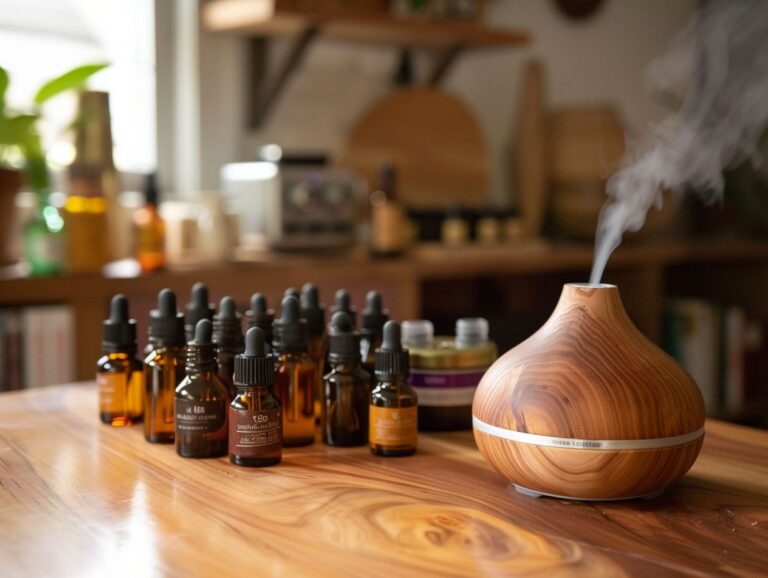
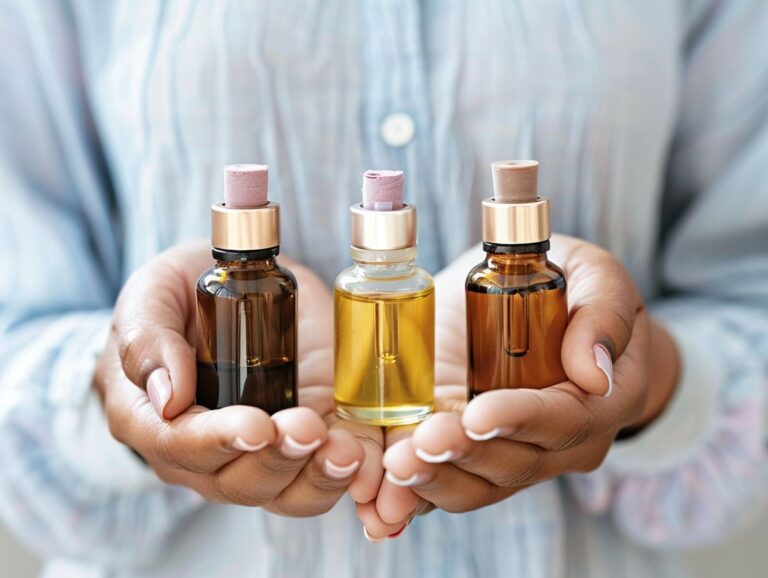
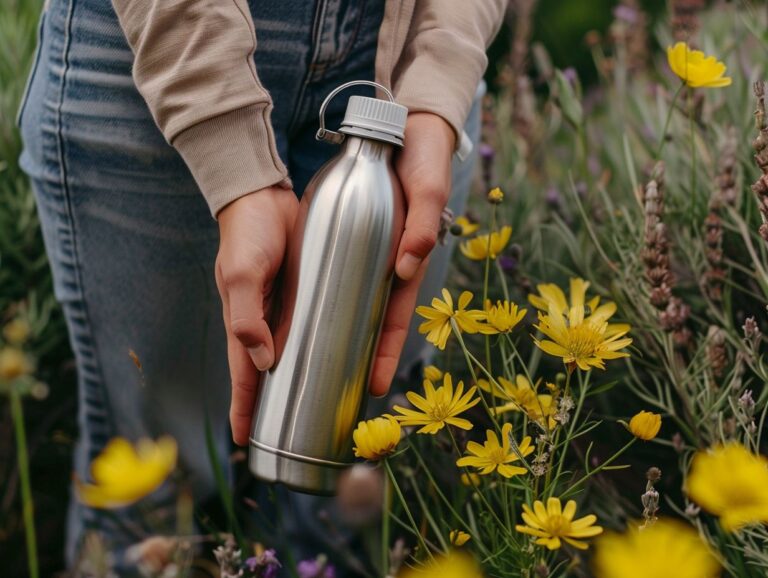

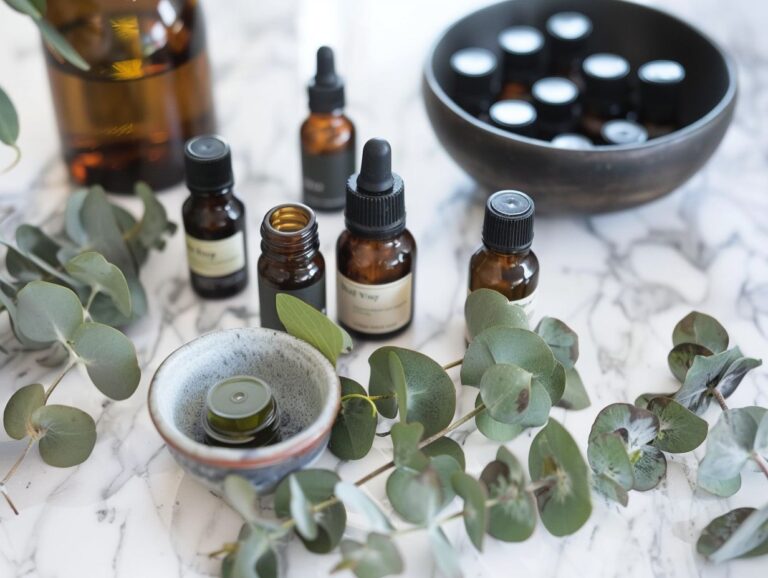
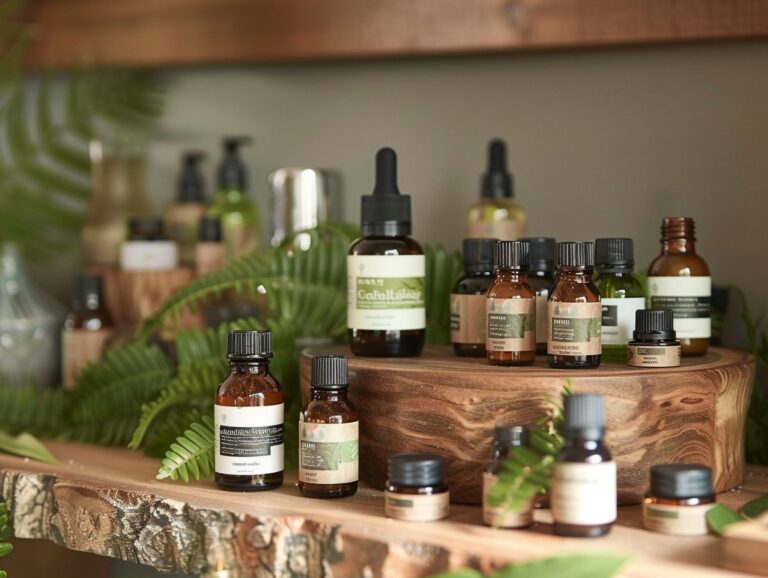
One Comment